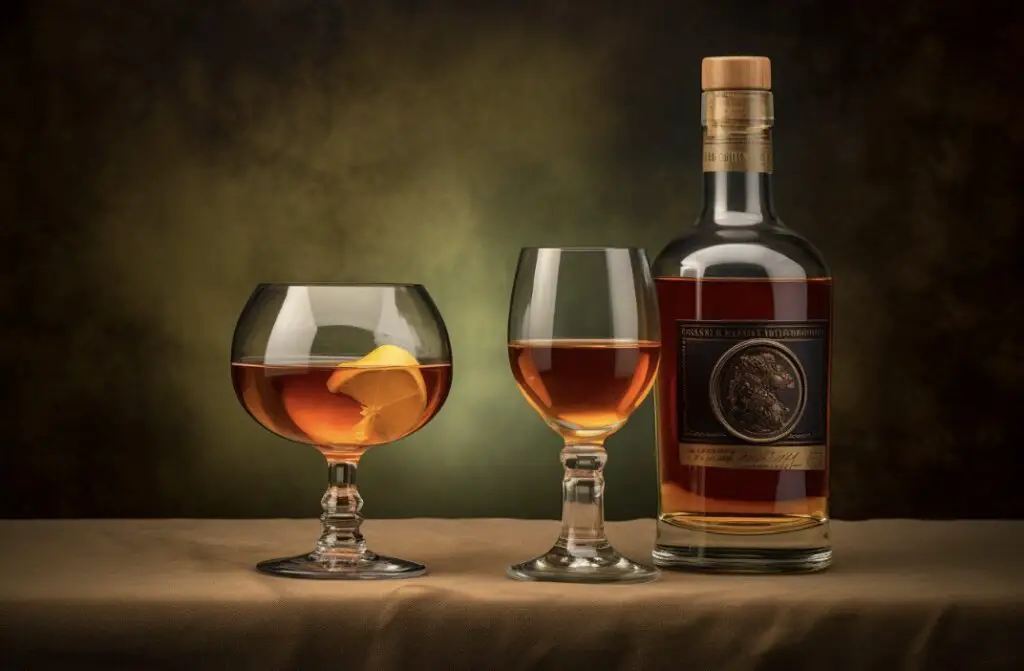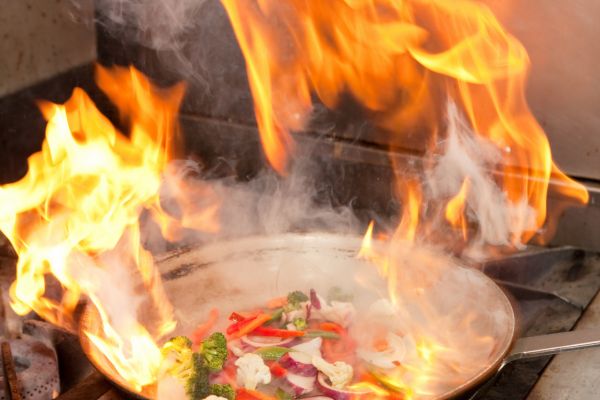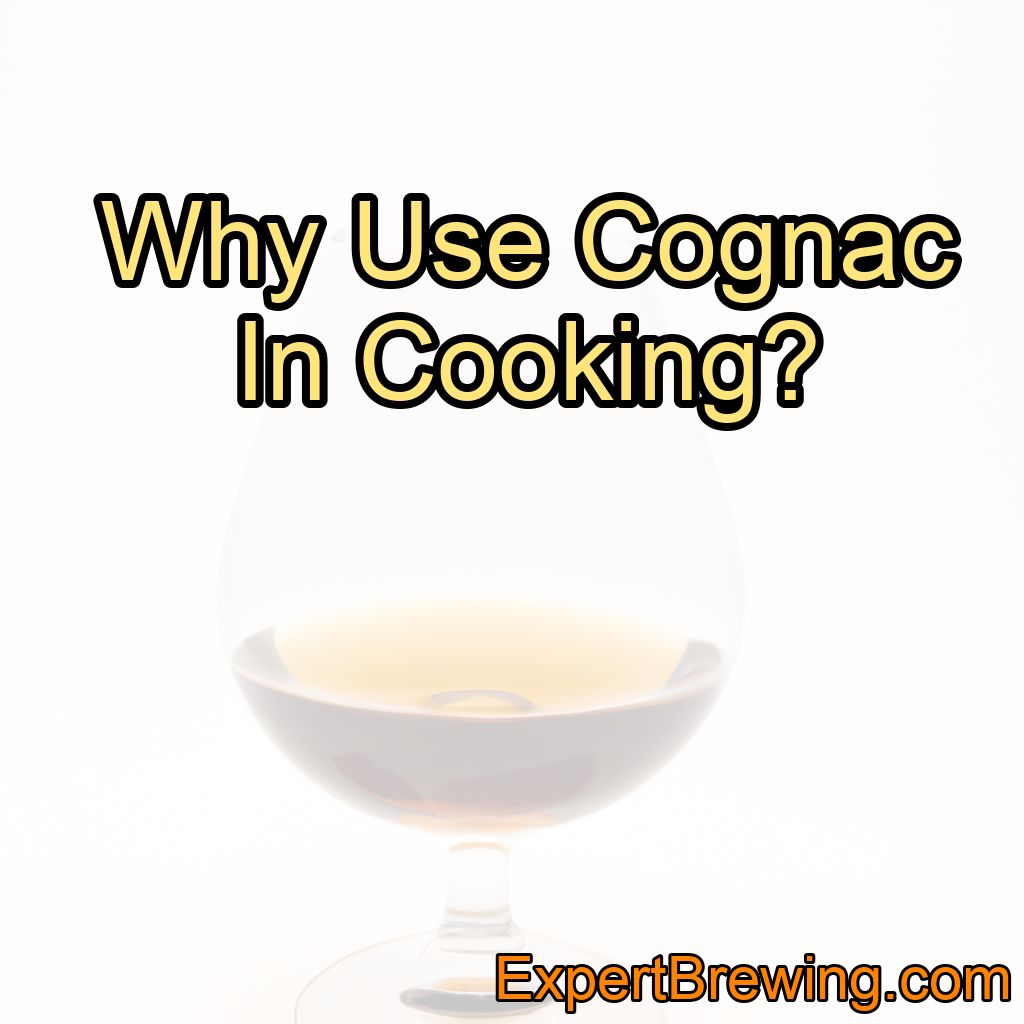If you’re anything like me, you appreciate the art of cooking as much as you value the craft of brewing.
One of the best ways to combine these two passions is by using alcohol in cooking. Not only can alcohol enhance the flavors of your dish, but it can also offer new layers of complexity and depth. One such spirit that brings a unique touch to the culinary world is cognac.
The question then is, why use cognac in cooking?
Because cognac, with its rich, spicy, and fruity flavor profile, can elevate a dish from ordinary to extraordinary. It adds a depth and complexity to dishes that cannot be achieved with other ingredients.
Let’s delve deeper into this fascinating topic.
Understanding Cognac
Before we can fully appreciate the use of cognac in cooking, we need to understand what it is. Cognac is a variety of brandy named after the commune of Cognac, France.
It is produced by doubly distilling white wines produced in any of the designated growing regions.
The result is a spirit of exceptional quality, filled with a variety of complex flavors that range from fruity to spicy.
The Making of Cognac
Cognac is made from a specific type of grape, the Ugni Blanc. After the grapes are harvested and fermented, the wine is then distilled twice in copper pot stills.

The final spirit is aged in oak barrels for at least two years, although some cognacs can be aged for much longer. This long aging process gives cognac its distinctive, complex flavor profile.
Using Cognac in Cooking
When used in cooking, cognac can provide an extra layer of depth and richness to your dishes. It can help balance out flavors, cut through the richness of fatty foods, and add a subtle hint of complexity that can take your cooking to the next level.
Cooking Techniques with Cognac
There are many ways to incorporate cognac into your cooking. One popular method is flambéing, where cognac is added to a hot pan, causing it to ignite and burn off most of the alcohol.
This leaves behind a concentrated flavor that can enhance meats, sauces, and desserts.

Another technique is deglazing, where cognac is used to loosen the browned bits stuck to the bottom of a pan after cooking, which are then incorporated back into the dish for added flavor.
Cognac in Desserts
Cognac isn’t just for savory dishes. It can also bring a delightful twist to desserts. From poached pears in a cognac-infused syrup to a rich, velvety cognac chocolate mousse, there’s no limit to the sweet creations you can make.

Using cognac in desserts can bring a sophisticated, grown-up twist to your sweet treats.
Cognac in Cocktails
Cognac isn’t only used in cooking; it’s also a popular choice for cocktails. It brings a warm, rich flavor that pairs well with many mixers. From classics like the Sidecar and the French 75, to more inventive concoctions, cognac can be the star of your cocktail hour.
Health Benefits of Cognac
Apart from its culinary uses, cognac also has several health benefits when consumed in moderation. It contains antioxidants which help fight against free radicals in the body. Additionally, it has been found to be good for the heart, as it can help lower bad cholesterol levels.
What about Brandy in general?
Cognac and brandy are both types of distilled spirits made from grapes, but there are a few differences when it comes to cooking.
Cognac specifically refers to brandy that is produced in the Cognac region of France, using specific grape varieties and distillation methods. It tends to have a more refined and complex flavor profile.
On the other hand, brandy is a broader term that encompasses various types of distilled grape spirits produced worldwide. In cooking, both cognac and brandy can be used to add depth and richness to sauces, desserts, and other dishes.
However, due to its distinct characteristics, cognac is often preferred for more delicate recipes or when a specific flavor profile is desired.
What are some good alternatives to cognac in cooking?
Cognac is often used in cooking to add depth of flavor and a rich aroma to dishes. If you’re looking for alternatives to cognac in cooking, here are some options:
- Brandy: Brandy is a spirit similar to cognac and can often be used interchangeably in recipes. It’s made from distilled wine and offers a similar flavor profile, although it might not be as complex as high-quality cognac.
- Armagnac: Armagnac is another type of French brandy that’s often compared to cognac. It has a distinct flavor profile and can be used in recipes that call for cognac.
- Whiskey or Bourbon: Depending on the recipe, you can use whiskey or bourbon to replace cognac. These spirits can add a unique depth and character to your dishes.
- Rum: Dark rum can work well as a substitute for cognac in some recipes. It brings a rich, slightly sweet flavor that can enhance certain dishes.
- White Wine: For dishes that require a lighter flavor, you can use white wine instead of cognac. Keep in mind that wine won’t provide the same level of alcohol content, so the flavor may be a bit different.
- Sherry: Sherry is a fortified wine that can be used in place of cognac in certain recipes. It adds a nutty, slightly sweet flavor to dishes.
- Non-Alcoholic Substitutes: If you’re looking for non-alcoholic options, you can use grape juice, apple juice, or a combination of fruit juices to mimic the fruity and slightly sweet notes of cognac.
When substituting any of these alternatives for cognac, keep in mind that the flavor profile might vary slightly, so it’s a good idea to adjust the quantities according to your taste preferences.
Also, consider the overall flavor profile of the dish and choose an alternative that complements the other ingredients.
Conclusion
In conclusion, using cognac in cooking can significantly enhance your dishes, adding a depth and complexity of flavor that is hard to achieve with other ingredients. Whether you’re using it in savory dishes, desserts, or cocktails, cognac can take your culinary creations to the next level.
Here are 10 facts about cognac and its uses in the kitchen:
1. Cognac is a variety of brandy named after the commune of Cognac, France.
2. It is made from the _Ugni Blanc_ grape.
3. The spirit undergoes double distillation and is aged in oak barrels.
4. Cooking with cognac can add depth and richness to your dishes.
5. The popular cooking techniques with cognac are flambéing and deglazing.
6. Cognac can be used in both savory dishes and desserts.
7. It brings a sophisticated twist to desserts.
8. Cognac is also a popular choice in cocktails.
9. Consumed in moderation, cognac has several health benefits, including antioxidant properties.
10. It can also help lower bad cholesterol levels.
From my personal experience, I have found that using cognac in cooking brings a unique, sophisticated flavor to my dishes. It’s not just about getting a hint of alcohol in the food, but about harnessing the complex flavors of this quality spirit. Whether you’re a novice cook or a seasoned chef, I would highly recommend experimenting with cognac in your kitchen.
FAQs
Is it better to cook with brandy or cognac?
Both brandy and cognac can be used for cooking, but the choice depends on personal preference and the specific dish. Brandy is a general term for distilled spirits made from fermented fruit juice, while cognac is a specific type of brandy made in the Cognac region of France. Cognac is often considered more refined and luxurious, with a complex flavor profile. However, brandy can be a more versatile option with a wider range of flavors and price points. Ultimately, it’s up to you to decide which one suits your taste and the requirements of your recipe.
Can I substitute cognac for brandy in a recipe?
Yes, you can substitute cognac for brandy in a recipe. Cognac is a type of brandy that is produced in a specific region of France. It has a distinct flavor profile, but it can generally be used interchangeably with other types of brandy in cooking and baking recipes.
Which is better for cooking cognac or brandy?
Both cognac and brandy are suitable for cooking, but the choice depends on the specific flavors you desire. Cognac tends to have a more refined and elegant taste with floral and fruity notes, making it great for delicate recipes or desserts. On the other hand, brandy has a bolder and richer flavor profile, which can enhance savory dishes and sauces. Ultimately, it comes down to personal preference and the specific dish you are preparing.
What is the purpose of brandy in cooking?
Brandy serves as a flavorful ingredient in cooking, adding depth and enhancing the taste of various dishes. It imparts a rich, sweet, and slightly fruity flavor that can elevate sauces, marinades, desserts, and even savory dishes.
Is brandy good for cooking?
Yes, brandy is commonly used in cooking due to its rich flavor and aroma. It can enhance the taste of various dishes, especially in sauces, marinades, and desserts.




